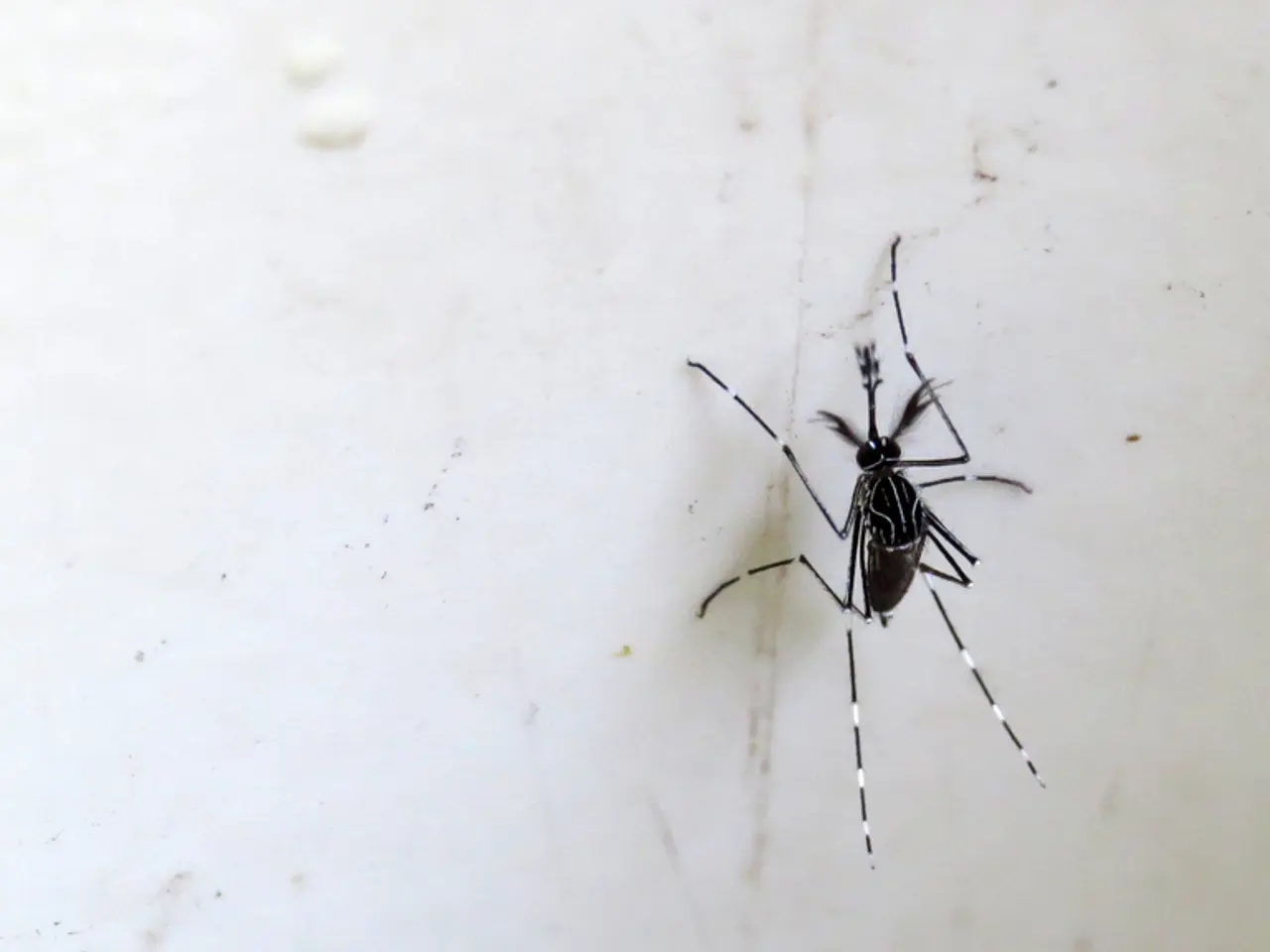Mosquitoes of the tiger variety are capable of reproducing with a bottle cap.
In an effort to combat the Asian tiger mosquito and its breeding sites in Neustadt, Dresden, Germany, the local health department has launched a multi-faceted approach involving residents, experts, and a specialized company.
Eliminating Breeding Sites
Residents are urged to remove or empty any containers holding standing water around homes, such as buckets, flowerpots, clogged gutters, tires, and bird baths. The Asian tiger mosquito lays eggs in stagnant water, making this a crucial step in prevention [3].
Physical Barriers and Personal Protection
Install window and door screens to prevent mosquitoes from entering homes. Use mosquito nets over beds, and wear long, light, and airy clothing covering arms and legs, especially during the daytime hours. Apply insect repellents containing DEET, Icaridin, or Citriodiol on exposed skin [1][3].
Community Cooperation
Residents are asked to report sightings of Asian tiger mosquitoes to local health authorities to facilitate monitoring and control [3]. If a tiger mosquito is found, send a photo with the exact location to .
Safety Measures and Education
The biological agent used, Bacillus thuringiensis israelensis (BTI), specifically targets mosquito larvae and is safe for humans, animals, and plants. Residents can receive BTI tablets upon request at the district office Neustadt at Hoyerswerdaer Straße 3, 01099 Dresden [2]. Specialists are distributing flyers, checklists, and rain barrel nets to inform residents [4].
Professional Intervention
A specialized company is targeting the Asian tiger mosquito to contain its spread. Twelve traps are being set up between the houses of the Neustadt. Experts are treating all manholes and sewage shafts with a biological agent that targets mosquito larvae [5].
Health Risks and Vigilance
Though the likelihood of infections like dengue or chikungunya in Germany remains low, the Asian tiger mosquito can transmit these viruses. Vigilance and preventive measures remain important [1][4]. For a more accurate identification, the captured insect should be handed over to the State Investigation Office for Health and Veterinary Medicine Saxony (LUA), Jägerstraße 8/10, 01099 Dresden.
For further information, please visit here. Listen to the interview with infection expert Angelie Ernst from the Dresden Health Department at the end of the article for more information.
The Asian tiger mosquito was first detected in Saxony and Dresden last year. Residents are advised to cover rain barrels with a mosquito net. If you encounter any issues or have questions, do not hesitate to contact your local health authorities.
Residents can take steps in preventing the Asian tiger mosquito by removing standing water containers around their homes, as these sites are ideal for the mosquito's eggs [3]. For extra protection, they can also install window and door screens and wear protective clothing and insect repellents [1][3].




